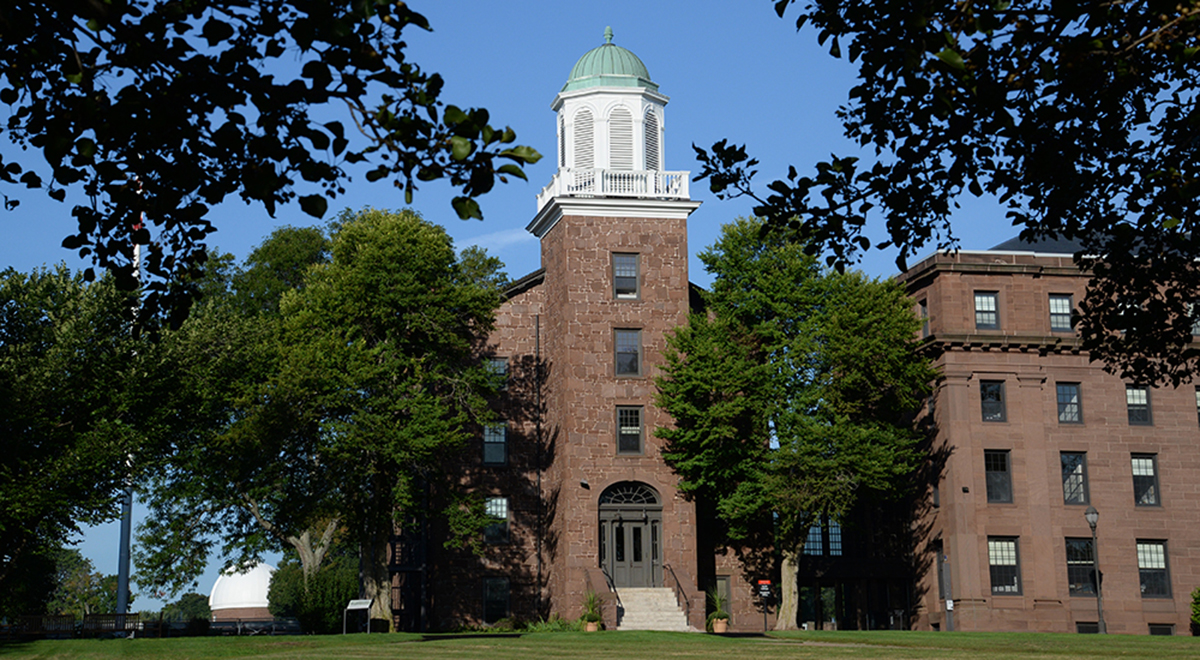Wesleyan in the News: President Roth on ‘Safe Enough’ Campuses

In a time when campus dialogue is front page news as violence continues in the Middle East, Wesleyan President Michael S. Roth ’78 has spoken and written extensively on the topic over the last few days, providing his perspective and insight into the environment at Wesleyan.
Roth appeared on MSNBC’s “The 11th Hour with Stephanie Ruhle” on Dec. 5 to discuss the campus conversation surrounding the war and student’s perception of safety during times of rising religious interpersonal conflict.
“On our campus, we have seen that people have the ability to sit together in the same room and listen to lectures about the history of the conflict, listen to reports on what is happening now, to ask tough questions, to sometimes get into charged conversations, sometimes just to grieve because of all the suffering that they see,” Roth said.
Roth was then interviewed on “CNN This Morning” by Poppy Harlow and Phil Mattingly on Dec. 8. He said his job as president is to make sure that Wesleyan is a place where students feel “safe enough.”
“We have to defend free speech, but we (also) have to have safe enough environments in which people can learn by talking to other people who don’t agree with them,” Roth said. “In America we’ve gotten very good at finding people who agree with us and having conversations with them. We have to remember how to have conversations with people who don’t agree with us. We might be wrong. We might learn something. Of course, that’s what colleges should be about.”
On Dec. 11, he went in-studio for a sit-down interview with CBS News’ “CBS Mornings” with Gayle King and Tony Dokoupil. Roth spoke on ideological balances on college campuses, student self-censorship, and a recent controversy regarding the college presidents of elite institutions in the United States.
“We need to build trust on campus… it’s not just about eradicating expressions of hate and microaggressions,” Roth said. “We need to build trust so that we can learn together.”
Roth wrote a piece for the Los Angeles Times on Dec. 11 on the role of college presidents as moral leaders. He called for leaders of secondary institutions to avoid acting as “neutral bureaucrats or referees among competing protestors, faculty and donors.”
“We must not hide behind the language of lawyers. We must speak up on the issues of the day when they are relevant to the core mission of our institutions,” Roth wrote. “Leaders of colleges and universities must not allow ourselves to be put on the defensive by politicians who are mostly interested in scoring points. We must defend academic freedom and intellectual diversity to ensure that demagogues don’t get to decide what we read or how we teach.”
He called for a widespread movement in higher education in support of democracy and its core mission in a piece for Salon on Dec. 12, while warning about the “clear and present danger” that former President Donald Trump would pose if elected to a second term in office. Wesleyan joined over 300 other school across the country in Engage 2020, a project focused on developing students as citizens, ahead of the 2020 election.
“We in higher ed must stand up for the values that make free inquiry and teaching possible,” Roth wrote. “We must defeat a movement that has already promised to seize control of how we study, conduct research, and teach. This is no time to seek refuge in doctrines of neutrality.”

